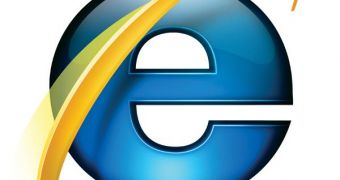Later today, November 18th, 2009, Microsoft will deliver the first taste of the next iteration of its proprietary browser. The Redmond company is looking to share plans about the successor of IE8, namely Internet Explorer 9 on the second day of the Professional Developers Conference 2009 in Los Angeles. It was Ray Ozzie, Microsoft Chief Software Architect that revealed the start of the discussion focused on IE9. Ozzie nominated Steven Sinofsky, President, Windows and Windows Live Division, as the Microsoft executive that would make public the first details on Internet Explorer 9.
“In terms of runtimes, our strategic runtime for delivering experiences across all three screens, across three screens and a cloud, are Internet Explorer and Silverlight. We'll work to ensure that Internet Explorer is the best browser for Windows without compromise, a standards based, modern browser to its core,” Ozzie stated. “Through IE we aspire to give Web app developers access to all the performance and all the functions that the Windows OS and the PCs hardware will serve up. You'll hear tomorrow from Steven Sinofsky, and he'll discuss Windows, IE, and much, much more.”
At this point in time, it is still unclear what Microsoft will actually be sharing on Internet Explorer 9 later today at PDC 2009, details-wise. However, don’t expect the software giant to release a preview version of IE9. Microsoft has underlined that it will not be delivering a Community Technology Preview of IE9, or the bits of IE8’s successor under any circumstances.
And, in fact, it would be a tad early for the company to start taking IE9 out of Redmond. Last anyone heard talk about Internet Explorer 9, the IE team was still hard at work harvesting feedback and planning for the next generation IE browser, but nothing more beyond that. In addition, Internet Explorer 8 was only released to web in March 2009 for pre-Windows 7 platforms, and RTM’d again at the end of July 2009, along with the latest iteration of the Windows client.
Surely Microsoft will not repeat the 5 year-long gap between IE6 and IE7, and the delivery of IE8 in March 2009 is a clear indication of this. However, whether the company is able to pick up the pace and offer IE releases on a much narrower timetable, say once every two years or even less, it still remains to be seen.
One thing is clear, the browser market is getting increasingly crowded. Microsoft needs to not only tackle Firefox and its constantly increasing audience, but also newcomer Google, that is synonymous with Internet search and viral videos and that is using its web properties to spread Chrome. The small Norway-based Opera Software building the Opera browser, despite having a smaller market share, is far from being insignificant, especially with the Europe Union’s Antitrust regulators behind it, as Microsoft found out.
Internet Explorer 8 (IE8) RTW is available for download here (for 32-bit and 64-bit flavors of Windows XP, Windows Vista, Windows Server 2003 and Windows Server 2008).

 14 DAY TRIAL //
14 DAY TRIAL //